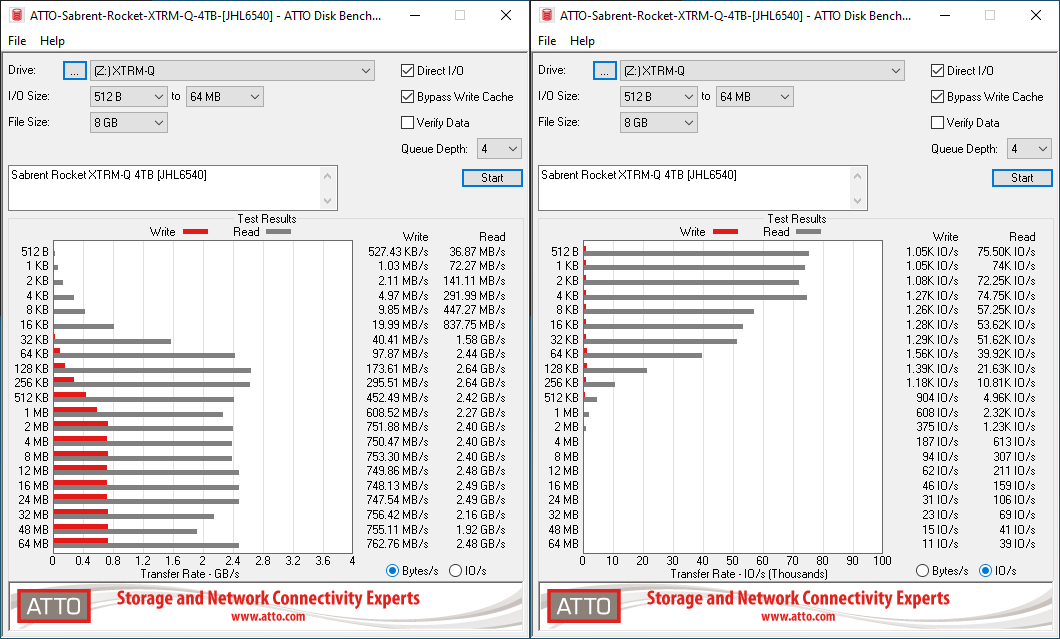Sabrent Rocket XTRM-Q USB / Thunderbolt 3 Dual Mode External SSD Review: Yin and Yang
by Ganesh T S on December 14, 2020 9:30 AM ESTSynthetic Benchmarks - ATTO and CrystalDiskMark
Sabrent claims speeds in excess of 2500MBps for the Rocket XTRM-Q. This is backed up by the ATTO benchmarks provided below on the read side, but the absence of write caching results in sub-1GBps performance for writes using the Thunderbolt 3 host ports. There is no discernible difference in the performance numbers when using either the JHL6540 or JHL7540 host. However, in the USB mode, the drives come close to 1GBps for both reads and writes (using the ASMedia ASM2142 host). These observations are common to both the 2TB and 4TB variants of the Rocket XTRM-Q. It must be noted that these access traces are not very common in real-life scenarios.
| Drive Performance Benchmarks - ATTO |
 |
CrystalDiskMark, despite being a canned benchmark, provides a better estimate of the performance range with a selected set of numbers.
| Drive Performance Benchmarks - CrystalDiskMark |
 |
In CrystalDiskMark, we see the 4TB version actually perform a bit worse compared to the 2TB version in the sequential reads with the Thunderbolt 3 host ports. However, in USB mode, both versions perform very similar to each other. In the USB mode, we can compare the 2TB version against the Crucial X8 for an apples-to-apples comparison - the numbers are in favor of the XTRM-Q across multiple traces.
In the next section, we take a look at real-world workloads along with an evaluation of the performance consistency.










14 Comments
View All Comments
s.yu - Monday, December 14, 2020 - link
The greatest thing I learned from this article is that TB drives usually aren't backward compatible with USB, it never even came to me that that would be possible. Good thing I didn't buy a TB housing for my SSD which would've been quite a bit more expensive than the USB version.ballsystemlord - Monday, December 14, 2020 - link
@Ganesh Could you just create the tables without JS? They might list a lot of images, but at least it would all be there.KimGitz - Tuesday, December 15, 2020 - link
I have been hoping to see this dual operation on audio interfaces. With Thunderbolt 4 and USB 4 offering the same bandwidth the fall back from Thunderbolt to USB would offer similar performance and features using the Jhl8440 Goshen Ridge Controller. I think all docks and peripherals in future should just support Thunderbolt 4 and USB4 dual use.Deicidium369 - Wednesday, December 16, 2020 - link
That's the point of TB4 - which is just a certification by Intel that both the TB3 and USB4 are implementing the whole spec for both. TB4 is TB3 - 40Gb/s... So by definition a TB4 is an Intel certified TB3 + USB4 system.